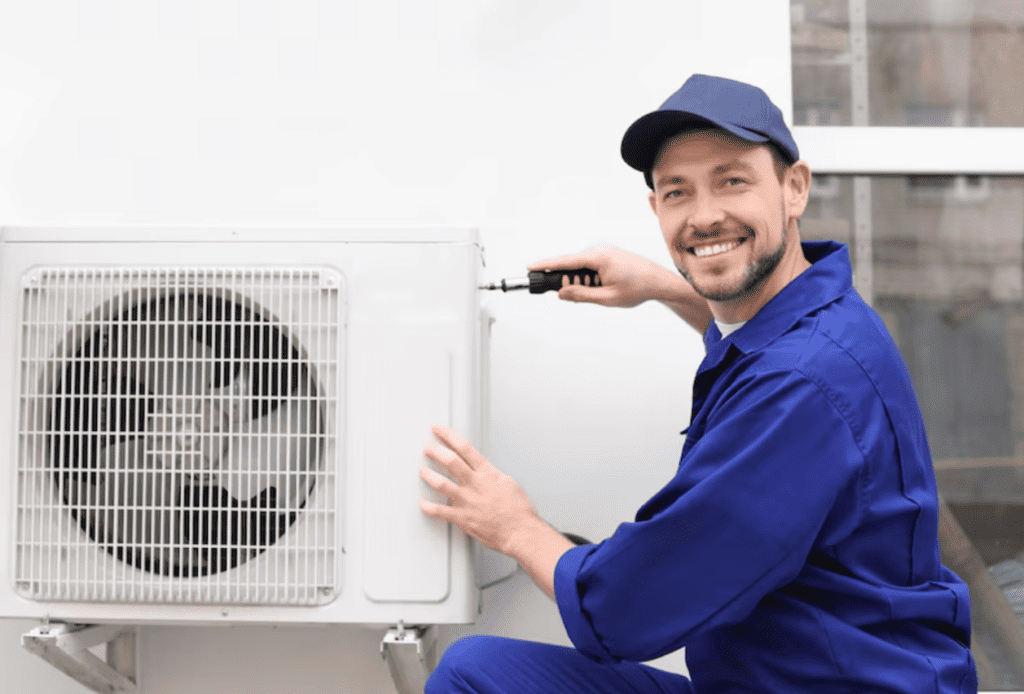Refrigerants play a crucial role in the heat exchange cycle of HVAC systems. They absorb heat from indoor spaces and release it outside, providing the desired cooling effect. In this comprehensive blog post, we delve into the critical aspect of HVAC systems — refrigerants. Understanding the types, significance, usage, potential problems associated with refrigerants, and why is it vital for maximizing the efficiency of your HVAC system. Let’s explore the intricacies of refrigerants, offering valuable insights to help you make informed decisions about your HVAC system.
Types of Refrigerants used in HVAC Systems
Refrigerants are essential components in HVAC systems, responsible for the heat exchange process that keeps our homes cool or warm. Over the years, different types of refrigerants have been used, with varying environmental impacts.
1. Chlorofluorocarbons (CFCs) – Once widely used, CFCs were phased out due to their harmful effects on the ozone layer.
2. Hydrochlorofluorocarbons (HCFCs) – These were introduced as a transitional replacement for CFCs but are also being phased out due to their ozone-depleting potential.
3. Hydrofluorocarbons (HFCs) – Commonly used today, HFCs have a lower impact on the ozone layer but are potent greenhouse gasses, contributing to global warming.
4. Hydrocarbons:– Increasingly popular for their low environmental impact, hydrocarbons like propane and isobutane are gaining acceptance in certain HVAC systems.
5. HFOs (Hydrofluoroolefins) – Considered the next generation of refrigerants, HFOs have lower global warming potential than HFCs, addressing environmental concerns.
Significance of Refrigerants
Refrigerants assume a pivotal role in the heat exchange cycle within HVAC systems. They adeptly absorb heat from indoor spaces, releasing it outside to generate the desired cooling effect. Moreover, during the heating mode, refrigerants skillfully capture heat from the external environment and efficiently transfer it indoors. It’s important to note that the selection of a specific refrigerant significantly influences the efficiency, environmental footprint, and overall performance of the HVAC system.
Usage of Refrigerants in HVAC Systems
The type of refrigerant used in an HVAC system depends on factors such as system design, efficiency, and environmental considerations. Modern systems often use environmentally friendly refrigerants that comply with international regulations.
The efficiency of an HVAC system is closely linked to the refrigerant’s ability to transfer heat efficiently. Newer, more advanced refrigerants are designed to enhance this heat transfer process, improving overall system efficiency.
Problems Associated with Refrigerants
While refrigerants are crucial for HVAC systems, they come with potential problems that can impact both the environment and system efficiency.
1. Environmental Impact: Traditional refrigerants like CFCs and HCFCs have been linked to ozone layer depletion and global warming. Even HFCs, while less harmful to the ozone layer, are potent greenhouse gasses.
2. Leakage: Refrigerant leakage is a common issue that can lead to decreased system efficiency and environmental concerns. Leaked refrigerants not only harm the environment but also contribute to higher energy bills as the system works harder to compensate.
3. Regulatory Changes: Ongoing international efforts to address climate change have led to stricter regulations regarding the use of certain refrigerants. HVAC systems using outdated refrigerants may face regulatory challenges.
Solutions for Maximizing HVAC Efficiency
Maximizing HVAC efficiency involves adopting solutions that address the problems associated with refrigerants:
-
Transition to Environmentally Friendly Refrigerants
Consider upgrading your HVAC system to use environmentally friendly refrigerants with lower global warming potential. This not only ensures compliance with regulations but also contributes to sustainability efforts.
-
Regular Maintenance
Schedule regular HVAC maintenance to detect and repair refrigerant leaks promptly. Maintenance also involves checking and adjusting refrigerant levels to optimize system efficiency.
-
System Upgrades
If your HVAC system is outdated and still uses refrigerants with environmental concerns, consider upgrading to a newer, more efficient system. Newer systems often come with advanced refrigerants and technologies that enhance overall performance.
-
Proper Installation
Ensure that your HVAC System is installed by certified professionals. Proper installation helps prevent refrigerant leakage and ensures the system operates at peak efficiency.
-
Energy-Efficient HVAC Systems
Explore energy-efficient HVAC systems that are designed to maximize performance while minimizing environmental impact. Systems with variable-speed compressors and advanced heat exchange technologies can significantly improve efficiency.
-
Stay Informed About Regulations
Keep yourself informed about evolving regulations regarding refrigerants. This awareness will help you make informed decisions about your HVAC system, ensuring compliance with current and future environmental standards.
When it comes to maximizing HVAC efficiency, the role of refrigerants cannot be overstated. Over time, HVAC systems, especially older ones, may use refrigerants that are outdated and less environmentally friendly. Upgrading or replacing these refrigerants can significantly enhance the efficiency of the entire system.
How and When to Replace and Install New Refrigerants in Old HVAC Systems
Older HVAC systems often use refrigerants that are now recognized for their adverse environmental impact. When considering the replacement and installation of new refrigerants in older systems, a strategic approach is crucial.
1. Assess the Age of the HVAC System
If your HVAC system is over a decade old, it’s likely using refrigerants that are less efficient and more harmful to the environment. Consider upgrading to newer, eco-friendly refrigerants that align with modern environmental standards.
Suggested Read: Top HVAC Upgrades That Qualify for Mass Save Rebates
2. Performance Evaluation
Evaluate the current performance of your HVAC system. If you’ve noticed a decline in efficiency, increased energy bills, or inconsistent cooling or heating, it might be time for a refrigerant upgrade. Newer refrigerants are designed to facilitate better heat exchange, resulting in improved overall system performance.
3. Environmental Considerations
Given the increasing awareness of environmental issues, it’s prudent to replace old refrigerants that contribute to ozone depletion or global warming. New refrigerants with lower global warming potential and reduced environmental impact should be considered to align with sustainability goals.
4. Regulatory Compliance
Stay informed about evolving regulations regarding refrigerants. Some older refrigerants are being phased out due to environmental concerns, and compliance with these changes might be necessary. Upgrading to new refrigerants ensures your HVAC system aligns with current and future regulatory standards.
5. Professional Assessment
Consult with HVAC professionals for a thorough assessment of your system. They can determine the compatibility of your existing system with newer refrigerants, suggest appropriate upgrades, and ensure the installation is conducted safely and efficiently.
6. Energy Efficiency Benefits
Upgrading to newer refrigerants not only benefits the environment but also improves energy efficiency. Modern refrigerants often contribute to reduced energy consumption, resulting in lower utility bills and a smaller carbon footprint.
Replacing and installing new refrigerants in old HVAC systems is a strategic move to enhance efficiency, comply with environmental regulations, and contribute to sustainability efforts. For personalized advice on upgrading your HVAC system, contact All Seasons Home HVAC. Our experienced technicians can guide you through the process, ensuring your HVAC system operates at its peak efficiency while minimizing its environmental impact.
Ready to Replace Your Refrigerant?
Refrigerants are integral to HVAC systems, influencing their efficiency and environmental impact. Staying informed about the types, significance, usage, and potential problems associated with refrigerants allows homeowners to make choices that align with both their comfort and environmental responsibility. Replacing and installing new refrigerants in old HVAC systems is a strategic move to enhance efficiency, comply with environmental regulations, and contribute to sustainability efforts. For personalized advice on upgrading your HVAC system, contact All Seasons Home HVAC.
Ready to maximize your HVAC system’s efficiency while minimizing its environmental impact? Contact us so our experienced technicians can guide you through environmentally friendly refrigerant options, perform system upgrades, and ensure your HVAC system operates at its best. Make a positive impact on both your comfort and the environment!




